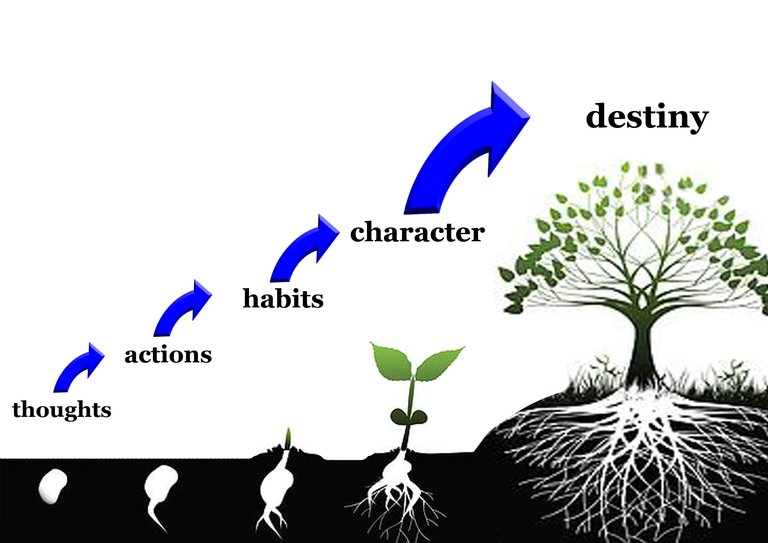
Thought is the past tense and past participle of think. ... Thought is the activity of thinking, especially deeply, carefully, or logically.
Thought (also called thinking) is the mental process in which beings form psychological associations and models of the world. Thinking is manipulating information, as when we form concepts, engage in problem solving, reason and make decisions.
Using these 5 strategies you can develop your independent thinking ability.
- Disconnect from sources of conventional thinking
Instead of plugging into your TV, PC, or library for answers, think for yourself first. Without cutting yourself off from the world, you can increase your capacity for independent thought by limiting the conventional opinion you absorb. This means reducing the media you consume and the level of devotion you give to it. Independent thinkers aren’t necessarily contrarian, but they don’t agree with the status quo by default. They devise new criteria for perceiving the world rather than seeing everything through the screen of their computer. - Immerse yourself in experiences that conflict with your current perspective
Instead of substituting a new conventional thought for the old one, deliberately seek out experiences that challenge your views. These experiences may exist in foreign cultures, unusual subcultures, or between the pages of a book you disagree with. The point is not to adopt a new train of thought, but to disrupt the conventional railroad. - Watch the process from a distance
Leaving your normal life behind can give you the freedom to see issues from another perspective. Watching the world instead of eating it up gives you the peace of mind to think for yourself. Standing still from time to time gives you the opportunity to ridicule your own beliefs and explore new angles. - Randomize your sensory inputs
Instead of visiting the same places, eating the same foods, and talking to the same people, you can actively pursue new experiences. Many people cling to the familiar to simplify decisions and create a sense of security. If you truly want to think independently, you need to get outside your comfort zone. - Practice disbelief
Without becoming a cynic, you can develop the habit of instinctively distrusting thoughts that rely on conventional wisdom. Instead of assuming that these “truths” are self evident, suspend judgement until you’ve have confirmed that there is reality behind the logic.
If all of this sounds too difficult, consider what can be gained from independent thought. Even microscopic steps towards thinking independently will increase your contribution to the world. You will see opportunities and solutions that others overlook. You will obtain a competitive advantage over less creative thinkers.
Think independently and create a world of limitless opportunity. But don’t take my word for it, find out for yourself.